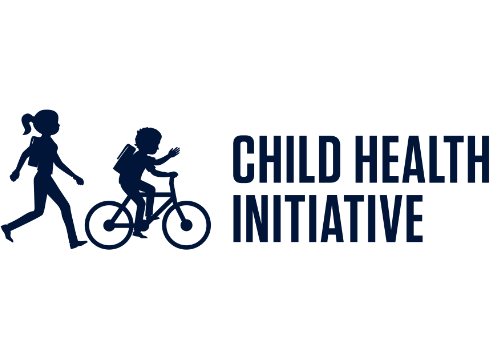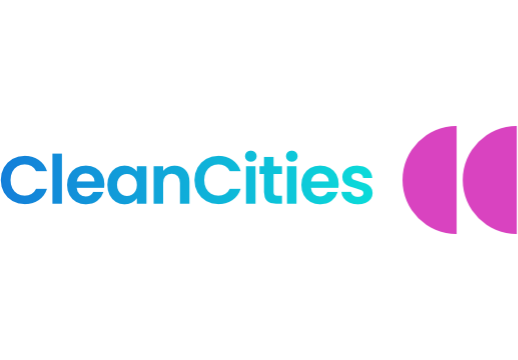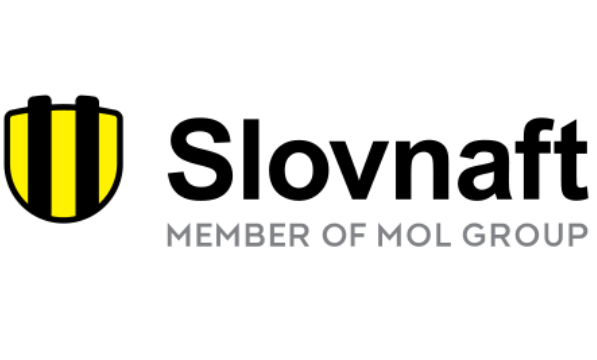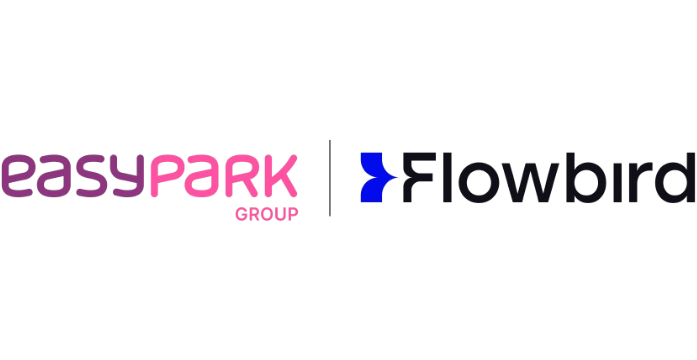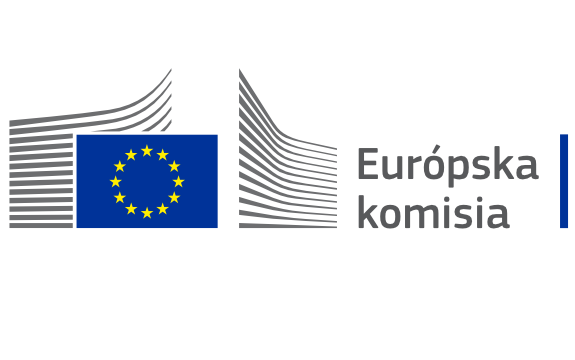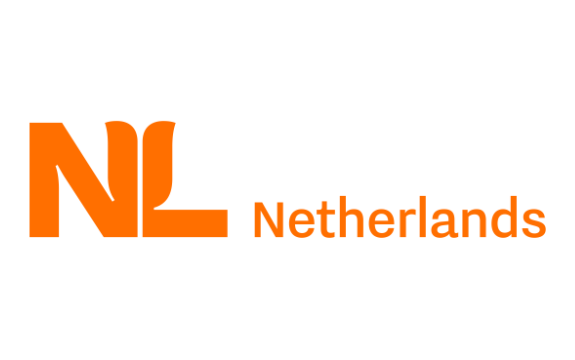Explore the two-day conference schedule
Venues Old Market Hall, Mirror Hall, Viecha, Mezzanine
Please note that the schedule may be subject to change.
Tuesday
8:30
Open Door - Registration
09:30
09:40
In this session MIB Director Petra Marko will lay out how Bratislava and the region need to re-think how to build housing with children at the center of the design brief, and highlight recent innovations happening in the city to address this need.
09:55
Bayanihan is a traditional Filipino word that refers to a richly layered concept of selflessness, a spirit of communal unity, and the physical place of a house. Opening the summit, Jonny Anstead and Angela Garbes will explore the role of community in growing children and caregivers’ well-being, resilience, and sense of belonging. Building on Angela’s personal and political lens on caregiving, family support, and interdependence, and Jonny’s insights from TOWN’s work in designing intergenerational co-housing developments that prioritize connection, together they will examine how physical space impacts meaningful relationships and supports robust communities of carers.
10:30
Our homes and neighborhoods shape children’s physical, emotional, and social well-being from the very beginning of life. In this session, Dinah Bornat will explore how housing and neighborhood design can support spontaneous doorstep play and community connection. Drawing on years of architectural research and practice on the specific needs children and parents have from housing, she has identified four foundational principles that, when working in concert, create ideal conditions for free-roaming play. Dinah will also examine how inclusive planning processes are essential to healthier and more equitable living environments. This talk invites us to rethink housing through the dimension of play, grounded in the everyday realities of families and young children.
10:55
Break
11:20
Renowned architecture critic and author Adam Gebrian moved with his family to Barcelona in 2017, where his partner would work on her PhD, and he would explore the city’s design heritage with their two-year old son Filip. But standing before Antonio Gaudi’s first work in Plaça Real - a street lamp from 1879 - Filip’s curiosity fixated on a large rain puddle just beneath it. “That’s when everything changed.” The episode inspired Three Months in Barcelona, a book that is part architectural guidebook, part memoir, in which Gebrian recounts learning to see the city from the eyes of a toddler and what it reveals about everything from cities’ maintenance and logistics systems, to broad, universal values in master works of architecture. The recipient of the prestigious Czech “Architect of the Year” award in 2015, Adam has since written similar accounts in Two Months in Lisbon, Summer in Tenerife, Seven Months in Raleigh, New York, Chicago, and is currently developing a next book on Costa Rica.
11:45
Vienna's Approach to Livability and Aspern Seestadt
Eva Kail, urbanist
Carlota Rebelo, MONOCLE, moderator
In conversation with journalist Carlota Rebelo, Eva Kail will trace the roots of gender planning and how its principles have led to a more accessible city for everyone, thanks to safer streets, better transit service, and parks and public spaces that address the needs of women and caregivers. Drawing from her pioneering work on gender mainstreaming for the City of Vienna since the early 1990s, Eva will illustrate how Vienna has applied gender mainstreaming across nearly three decades of urban growth, culminating in deeply influencing one of Europe’s largest new districts: Aspern Seestadt. Looking towards the future, this session challenges planners to embed care, equity, and everyday life at the heart of urban policy and design.
12:20
How Bratislava and Košice Implement Livable Principles (in Slovak/Czech language with simultaneous translation)
Juraj Šujan, Chief architect, Bratislava
Petr Kropp, Chief architect, Košice
Petra Marko, Metropolitan Institute of Bratislava, moderator
The Chief Architects of Bratislava and Košice, in conversation with Petra Mako, the chief executive of the Metropolitan Institute of Bratislava, will discuss how livability principles — including gender-sensitive planning, child-friendly cities approaches and lessons from Vienna’s urbanism — are being integrated into their cities' metropolitan plans. Together, they will examine shared challenges and opportunities for embedding qualitative, human-centered principles at the strategic scale of city planning.
12:50
Lunch break
14:00
5-Minute Nordhavn
Rune Boserup, COBE
Jakob Steen Christensen, JAJA architects
Carlota Rebelo, MONOCLE, moderator
This session explores Copenhagen’s newest district of Nordhavn as a living model of what is possible when a neighborhood is designed with everyday proximity in mind. Rune Boserup who helped develop the master plan of Nordhavn with Cobe Architects, and Jakob Steen Christensen who designed a playground and parking garage hybrid will unpack how the district effectively promotes sustainability and child-friendly living by integrating housing, schools, green spaces, and play infrastructure within walkable distances. With insights into planning, policy, and daily life in a dense yet livable setting, the conversation will address the opportunities and trade-offs of designing for proximity. Nordhavn’s story offers valuable lessons that scaling neighborhoods for children and families will create a successful “five-minute” concept.
Wired for Interdependence: How We Are Meant to Live
Angela Garbes, author
Patrin Watanatada, thinkfeelchange
Michael Feigelson, Van Leer Foundation
This panel explores caregiving as essential human labor—not a private burden, but a communal foundation of thriving societies. Angela Garbes, Michael Feigelson and Patrin Watanatada will examine how care shapes us biologically and culturally, and why our systems have devalued it. Through personal stories, audience reflection, and cross-disciplinary insight, the session will highlight what gets in the way of interdependence and how we can design care into the fabric of everyday life—from housing to health to community. For city leaders, urbanists, and early childhood professionals, this is a chance to reimagine care as infrastructure. Attendees will leave with a felt experience of care—and a clear sense that we can, and must, build more connected lives.
Financing the Future: European Mayor’s Alliance for Children Toolkit Presentation
Joe Waters, Capita
Atsani Ariobowo, FIA Foundation
Julienne Chen, EIT Urban Mobility
Invite only
City for Children: Roundtable for Municipalities
Juraj Hurný, Metropolitan Institute of Bratislava
Sandra Štasselová, Metropolitan Institute of Bratislava
Workshop
Registration required
This interactive session thematically links data collection, participation, and mobility solutions. The workshop is designed for municipal staff, mobility, planning and participation experts—in short, anyone who wants to improve child safety and the quality of streets in their municipality. The meeting is led by Juraj Hurný and Sandra Štasselová from the Metropolitan Institute of Bratislava.
Register hereStep away from the conference hall and into a different mode of experiencing the world. In this immersive "walkshop," renowned landscape architect and designer Helle Nebelong will guide participants on a sensory walk through a nearby natural environment. With a focus on "walking with the senses open," Helle will invite participants to attune themselves not only to what they see—but also to what they hear, smell, touch, and even taste. Through gentle prompts and reflective pauses, this experience will awaken the full spectrum of sensory perception that is often dulled in our fast-paced, built environments. Participants will be encouraged to reconnect with nature the way children do: with curiosity, wonder, and embodied presence. Along the way, Helle will share insights about the critical role of sensory-rich natural spaces in child development, wellbeing, and urban design. This walkshop is designed for anyone interested in understanding nature not just intellectually, but experientially—and to inspire deeper conversations about how cities can better nurture sensory engagement for children and people of all ages. Meeting point - Old Market Hall
Register here15:15
Break
15:35
Kids Everywhere: Learning from Freiburg, Barcelona & Utrecht
Tim Gill, author
Marco te Brömmelstroet, University of Amsterdam
When Tim Gill arrived in the Vauban district of Freiburg in 2017 on a research trip, he couldn’t believe how many children there were. But why? As more cities rethink their relationship with cars, vanguard neighborhoods in Freiburg, Barcelona, and Utrecht offer powerful examples of what’s possible. In this session, Tim Gill and Marco te Brommelstroet explore how focusing on the car at all misses the point, and that the key to radically improving children’s autonomy and long-term well-being is to focus on them. Through case studies and personal observations, they’ll highlight how play, social connection, and community resilience can be seen as their own issue, and open up far more exciting opportunities. The discussion will address ongoing challenges cities face, offering practical insights to cities to shift their focus to children.
Kids’ Online and Offline Worlds
Rob Hughes, London School of Hygiene and Tropical Medicine
Arielle Geismar, Design It 4 Us
Alice Ferguson, co-founder, Playing Out
Carlota Rebelo, MONOCLE, moderator
Managing children’s healthy relationship to technology is a vexing, multi-faceted challenge. In this session, three panelists from different regions of the digital debate will discuss children’s and parents’ digital lives beginning from an early age, social media and big tech’s disastrous role in a mental health epidemic and how young people are fighting back, and what an enclosed outside has meant for the fraying of childhood autonomy and accelerated social isolation. Technology researcher Dr. Rob Hughes, youth advocate Arielle Geismar, and play activist Alice Ferguson explore how online worlds are reshaping childhood—and what cities, schools, and families can do to strike a healthy balance.
Cycling for Better Health
Sam “Coach” Balto, Bike Bus World
Maud de Vries, BYCS
Adam Hlôška, Novo Nordisk
Paul Supawanich, Global Designing Cities Initiative, moderator
This session explores the powerful ripple effects of everyday cycling—on children’s individual health, social trust, and community health. Panelists will share insights from school-based Bike Bus programs, national cycling cultures, public health initiatives, and cycling infrastructure initiatives that reveal surprising and measurable benefits for children and cities alike. They’ll also address the barriers that prevent cycling from becoming more widespread, and what it takes to shift policy, investment, and public narratives. Whether through grassroots movements or corporate and government action, the conversation will highlight how cycling can become a vital part of healthier, more connected urban life—and how we can build the momentum needed to make it happen. This is a session for anyone working at the intersection of mobility, health, education, and city planning. Presented by Novo Nordisk.
“The question is not how to make a better system but how to support people to learn together to meet crises.” ~ Nora Bateson A Warm Data Lab is an invitation to a living inquiry into how we imagine, design, and shape our reality. This is not a panel, a workshop, or a lecture. It's a transcontextual conversation across perspectives. A place to ask different questions, pay attention to one another and the stories we tell, and how they shape us. How are our stories shaped by our environment, our history, our culture and how are our cities shaped by the stories we tell? A Warm Data Lab is a lively, fun, beautiful, vulnerable space where we can explore what it means to be alive today, and why our stories matter. Together. If we want to create better cities for children, we need different perspectives - so new stories can emerge. All you need to bring is you, your curiosity and your stories. This event is hosted by certified Warm Data Host Illah van Oijen (PUNKT), trained in the Warm Data Lab and People Need People (PNP) frameworks, both developed by Nora Bateson and stewarded by the International Bateson Institute."
Register here17:00
Meet&Greet - Networking session
Wednesday
9:30
Risky Play Scapes (in Slovak & Czech language with simultaneous translation)
Matěj Hájek, Skull Studio
Martin Hrouda, U/U Studio
Ján Losenický, Mayor of Kadan
Lenka Antalová-Plavúchová, Deputy Major, Bratislava
Štepán Bärtl, CAMP Prague, moderator
Two innovative designers working at the intersection of art, play, and sport, will illustrate how creating spaces for risk-taking fosters resilience, self-confidence, physical and mental health, social connection and ultimately a more inclusive urban environment. In dialogue with city officials, they will explore how municipalities can create opportunities for play, address community fears around youth sports in neighborhoods, ensure that girls and young women are actively considered in the design of play, urban sports and public spaces, and rethink the distinction between a playscape and a traditional playground.
Good Housing for a Good Start
Megan Sandel, Boston Medical Center
Tayo Isa Daniels, AtkinsRéalis
Dinah Bornat, ZCD Architects
Victoria Chavez, Van Leer Foundation, moderator
A child’s early environment shapes their lifelong health, learning, and emotional development, and no environment is more formative than the home. Yet for millions of families around the world, housing is unstable, inadequate, or unsafe. This panel explores the urgent need to reframe housing as essential infrastructure for early childhood development. Panelists will examine how poor housing harms both children and caregivers, and why current policies often fail to meet families’ real needs. They’ll also highlight how good housing—safe, affordable, and designed with families in mind—can act as a “preventive vaccine,” reducing long-term social costs and supporting generational wellbeing. Drawing on research and global examples, this discussion will show how cities and governments can shift from reactive housing policy to proactive investment in human potential. Together, we’ll ask “what would it take to treat housing not as a commodity, but as the foundation for healthy childhoods? Presented by the Van Leer Foundation
Protecting Children’s Journey to School: Advocating for Safer and Sustainable Active Mobility
Emily Carr, Eastern Alliance for Safe & Sustainable Transport
Diana Dulf, Department of Public Health, Babes-Bolyai University
Paul Supanawich, Global Designing Cities Initiative
Atsani Ariobowo, FIA Foundation
We owe children the right to move safely and independently through their cities. But for many, the daily journey to school remains dangerous, stressful, and car-dominated. This panel brings together global advocates, public health experts, and urban design leaders to explore how cities can reimagine school travel through the lens of safety, sustainability, and child development. From data-driven strategies in Central and Eastern Europe to global design guidelines and local community action, speakers will share proven approaches to creating walkable, bikeable, and equitable routes to school. Gathering under the auspices of the FIA Foundation Child Health Initiative, the discussion will offer practical insights for making change across diverse contexts. Whether you’re a policymaker, planner, or advocate, this session will equip you with compelling evidence and real-world examples to advance safer, healthier, and more joyful school journeys for every child.
Proximity Fresk
Catherine Gall, Chair ETI, Paris Sorbonne
Justine Gangneux, Eurocities
Benjamin Büttner, TU Munich
Workshop
Registration required
The “Proximity Fresk workshop” designed by researchers from Chaire ETI at IAE Paris Sorbonne is a co creative empathy based experience. The idea is to raise awareness about the power of urban proximities amongst multiple stakeholders—citizens, urban planners, city representatives, entrepreneurs, mobility providers, policy makers, children, researchers—to rethink neighbourhood planning and community living. Our daily lifestyles have a direct impact on the quality of our communities, cities, and the living world around us. In this workshop, participants will rethink daily routines of various user profiles (students, elderly couples single parents, children, impaired person, migrants …) to open new perspectives on neighbourhood design using the proximity ontology developed by Chaire ETI around 6 essential functions: living, working, learning, enjoying, supplying and caring. In this vision, daily life unfolds within a 15-to-30-minute radius by foot, bike, or public transport.
Register here10:45
Break
11:05
Innovative Family Housing Models: The Architect-Client Conversation
Jonny Anstead, TOWN
Juraj Benetin, COMPASS architects
Petra Truchla, YIT Slovakia
Slavomír Habánik, Lucron
Petra Marko, Metropolitan Institute of Bratislava, moderator
This session offers a deep dive into three pioneering housing projects: Marmalade Lane, Cambridge’s first co-housing community; and Urban Residence and Zwirn in Bratislava, two high-density urban developments centered around communal courtyards and shared amenities. Designed with a keen focus on the needs of children, families, and caregivers, these projects exemplify how strong alignment between architects and clients can lead to residential environments that support day-to-day living while delivering extensive shared facilities. The conversation will explore how such models generate long-term social, environmental, and economic value—and how they contribute to reversing the suburban sprawl that cities like Bratislava are facing. Presented by YIT & Lucron
Designing Child-Friendly Mobility: Lessons from Leading Cities in Europe
Gaia Romani, Vice Mayor, Milan
Rezina Chowdhury, Councillor, Lambeth
Linda Ozola, Vice Mayor, Riga
Barbara Stoll, Clean Cities Campaign
Demetrio Scopelliti, AMAT
Justine Gangneaux, Eurocities
What makes a city truly child-friendly—and how can we measure it? This session marks the launch of a groundbreaking publication that ranks cities based on their commitment to children’s well-being in urban life. A packed line-up of experts and city officials from Milan, Riga, and London, will share insights from their cities' experiences and reflect on how local governments can use data and policy to create environments where children thrive. The conversation will explore the indicators behind the ranking, from safe mobility to access to play, care, and education, offering a powerful tool for advocacy and action. Presented by Clean Cities Campaign
Shared Mobility for Families
Benjamin de la Peña, Shared-Use Mobility Center
Claudia Falkinger, Point&
Julienne Chen, EIT Urban Mobility, moderator
E-scooters, bike shares, and other micro-mobility options are reshaping how we move—but are they meeting the needs of families? This session explores how micro-mobility can be reimagined to support caregivers, children, and multigenerational trips in everyday life. Benjie de la Peña and Claudia Falkinger will share global insights and innovations—from family-friendly cargo bikes to policies that ensure safe, inclusive access to shared mobility. Moderated by Julienne Chen, the discussion will challenge planners and mobility providers to think beyond the solo commuter and build systems that serve the rhythms of family life.
Safer Cities for Girls Project
Sue Ellen Stefanini, Head of Mission, Plan International
Wouter Stes, Plan International Belgium
Maria Zaborska, Plan International Poland
Liliia Oleshko, Plan International Poland
Workshop
In cities worldwide, girls and young women face daily gender-based violence and harassment. Plan International’s Safer Cities for Girls program, implemented in collaboration with local partners, promotes inclusive, safe, and accountable cities where girls contribute to shaping urban spaces. Using a feminist and youth-focused approach, the program strengthens policies, trains government stakeholders, and builds girls’ awareness of their rights to safety. In this workshop, Plan International will present examples from Poland and Belgium, showcasing how the program increases girls’ access to public spaces and creates safe, empowering environments. A digital platform enables local authorities to gather girls’ experiences at scale. Youth-led campaigns address root causes of insecurity, while the program supports girls’ meaningful participation in urban governance. By enhancing leadership skills and creating opportunities for civic engagement, Safer Cities for Girls helps ensure that girls’ voices are heard in shaping the cities they live in. Presented by PLAN International
12:20
Lunch break
13:40
Before it became a global urban planning movement, the 15-minute city began with a question: how can we create better access to recreation for parents and kids? In this keynote, Professor Carlos Moreno reflects on how the child-focused “School is the Capital of my District” initiative in Paris helped seed a global idea. From turning schoolyards into parks and piloting car-free “school streets,” to citywide demand for safer, greener, more playful public spaces, the transformation began with children—and proved wildly popular. With 76% public approval and overwhelming support at the polls, Paris is now deepening the 15-minute city model—not only with greener streets, but with local economic proximity: new policies to bring services, shops, and shared life into every neighborhood. This keynote is more than a retrospective; it’s a call to design cities from the child up, where proximity, equity, and public life go hand in hand.
14:05
Young People's Perspective on Their Neighborhood
Students from Brilliant Stars International School with Dinah Bornat and Urban Studies and Participation Section at Metropolitan Institute of Bratislava
Youth participation in urban planning leads to more dynamic and inclusive spaces. This session explores participatory design methods—such as co-design workshops, play audits, and interactive mapping—to ensure that young people can contribute meaningfully to placemaking. Moving beyond traditional consultation, the discussion will emphasize co-creation and highlight ways to leverage schools and community organizations as platforms for civic engagement. A case study from Dinah Bornat’s workshop, conducted in cooperation with the Urban Studies and Participation Section of MiB, will illustrate best practices and key lessons learned.
14:25
Housing and Neighborhoods as Systems for Health
Megan Sandel, pediatrician and public health expert, Boston Medical Center
Dr. Megan Sandel is a pediatrician and public health expert specializing in the intersection of housing and child health. She advocates for integrating housing support into healthcare systems, viewing housing as a "vaccine" for children's health. She argues that housing and neighborhoods can act as a system for health, preventing a range of health problems, reducing healthcare costs by addressing the root causes of health disparities and promoting lifelong health and well-being. Dr. Sandel's work underscores the critical role of safe, stable, affordable homes in neighborhoods of opportunity in promoting children's optimal health and development. She calls for policy and urban design reforms to ensure that all families have access to safe, stable, quality, and affordable housing, recognizing it as fundamental to children's well-being.
14:50
Break
15:10
In cities, access to nature should never be a luxury, especially for children. In this session, landscape architect Helle Nebelong explores why the proximity of natural play environments in everyday urban settings is essential to healthy childhood development. She makes the case for embedding nature-based play into the fabric of neighborhoods—so that trees, stones, water, and wild textures are just steps away from homes, schools, and playgrounds. Drawing on decades of design experience, Helle will highlight how integrating nature into parks and public spaces fosters imagination, resilience, and well-being, while also strengthening children’s connection to the environment. This session is a powerful reminder: cities that prioritize everyday access to nature give their youngest residents the freedom to grow, explore, and thrive.
Register here15:35
Cities that Start with Children: Reflections and Next Steps
Matúš Vallo, Mayor of Bratislava
Michael Feigelson, CEO, Van Leer Foundation
Amanda Burden, Bloomberg Associates, moderator
As we close two days of exploring how to make cities more welcoming for children, families, and caregivers, this final session brings together Bratislava Mayor Matúš Vallo and Van Leer Foundation CEO Michael Feigelson for a wide-ranging conversation on what it means to build cities that truly start with children. Moderated by renowned urbanist Amanda Burden, the session will reflect on the key themes of the conference—from housing and health to independent mobility, play, gender-sensitive planning, and community building. Together, they’ll distill the most urgent lessons, celebrate bold ideas, and challenge the audience to carry forward a new vision of cities centered on care, connection, and everyday life. It’s not just a summary—it’s a call to action for the future we want to create.
16:20
Closing Remarks
Petra Marko, chief executive, Metropolitan Institute of Bratislava
Simon Battisti, Creative Director, Start with Children
16:30
Close
Let's meet in the Old Market Hall in Bratislava!
Join the discussion on child-friendly urban planning right from the heart of Slovakia’s capital.


